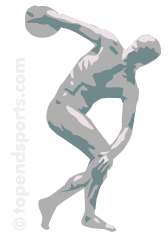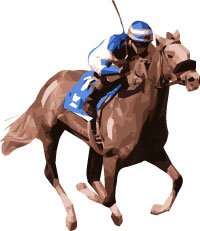As it is today, food has always played an important part in the life of athletes. In fact the winner of the running race (the stadion) at the first recorded Olympics in 776 BC was a cook, Koroibos from Elis.
Ancient Greek Diet
Food was a big part of life in Ancient Greece. The diet of most people mainly consisted of breads, vegetables and fruits. These staples are what we now consider an integral part of the Mediterranean Diet, an eating pattern that has been linked to the low rate of heart disease in the region. In ancient times the most common meat eaten was fish, due to the proximity to the sea for most of the population.
Early Athlete Diets
The diet of the athletes in the ancient Olympics differed radically from that of the modern day elite athlete, however the need for protein to build muscle and carbohydrate for the energy for exercise was no different. As the ancient Olympians came from the upper social strata in Greece, these families could afford to feed on more protein-rich legumes and meats to build muscle and did not have to rely on mostly breads, fruits and vegetables.
studied The Deipnosophists
while researching her cookbook,
The Philosopher's Kitchen.
 The Philosopher's Kitchen:
The Philosopher's Kitchen:
Recipes from Ancient Greece & Rome
Early records point to a cheese and fruit based diet for the first Olympic athletes, and later on the dietary emphasis shifted to meat. Food historian Francine Segan (quoted in Ref 1) found documents of an ancient Olympic runner who won several competitions while following a meat-only diet, which started a meat-only craze.
Other ancient diet tips for athletes also included avoiding bread right before competition and eating dried figs, thought to build muscle and stamina. As for drinking, wine was popular in ancient Greek times for both drinking and cooking. Even Hippocrates once reportedly gave the advice to athletes with sore muscles to "Get drunk once or twice".
The eating tales of Olympians past may have been exaggerated over time. The mythical strength of the athlete Milo is well known. The Deipnosophists (also known as The Philosophers' Banquet), is a 15-volume tale of a lengthy feast written around A.D. 200. This tome tells the tale of the wrestler Milo of Croton, who won competitions at six different Olympics:
"Milon of Croton used to eat 20 pounds of meat and as many of bread, and he drank three pitchers of wine. And at Olympia he put a four-year-old bull on his shoulders and carried it around the stadium; after which, he cut it up and ate it all alone in a single day."
If this food intake is to be believed, Milo would have consumed at least 57,000 kcal (238,500 kJ) per day!
References
- National Geographic News - Ancient Olympians Followed "Atkins" Diet, Scholar Says (http://news.nationalgeographic.com/news/ 2004/08/0810_040810_olympic_food.html - link no longer working)
- Grandjean, Ann C. (1997) Diets of Elite Athletes: Has the Discipline of Sports Nutrition Made an Impact, The Journal of Nutrition Vol. 127 No. 5, pp. 874S-877S.
- Grivetti, L. E. and Applegate, E. A. (1997) From Olympia to Atlanta: A Cultural-Historical Perspective on Diet and Athletic Training, The Journal of Nutrition Vol. 127 No. 5, pp. 860S-868S.


 Current Events
Current Events